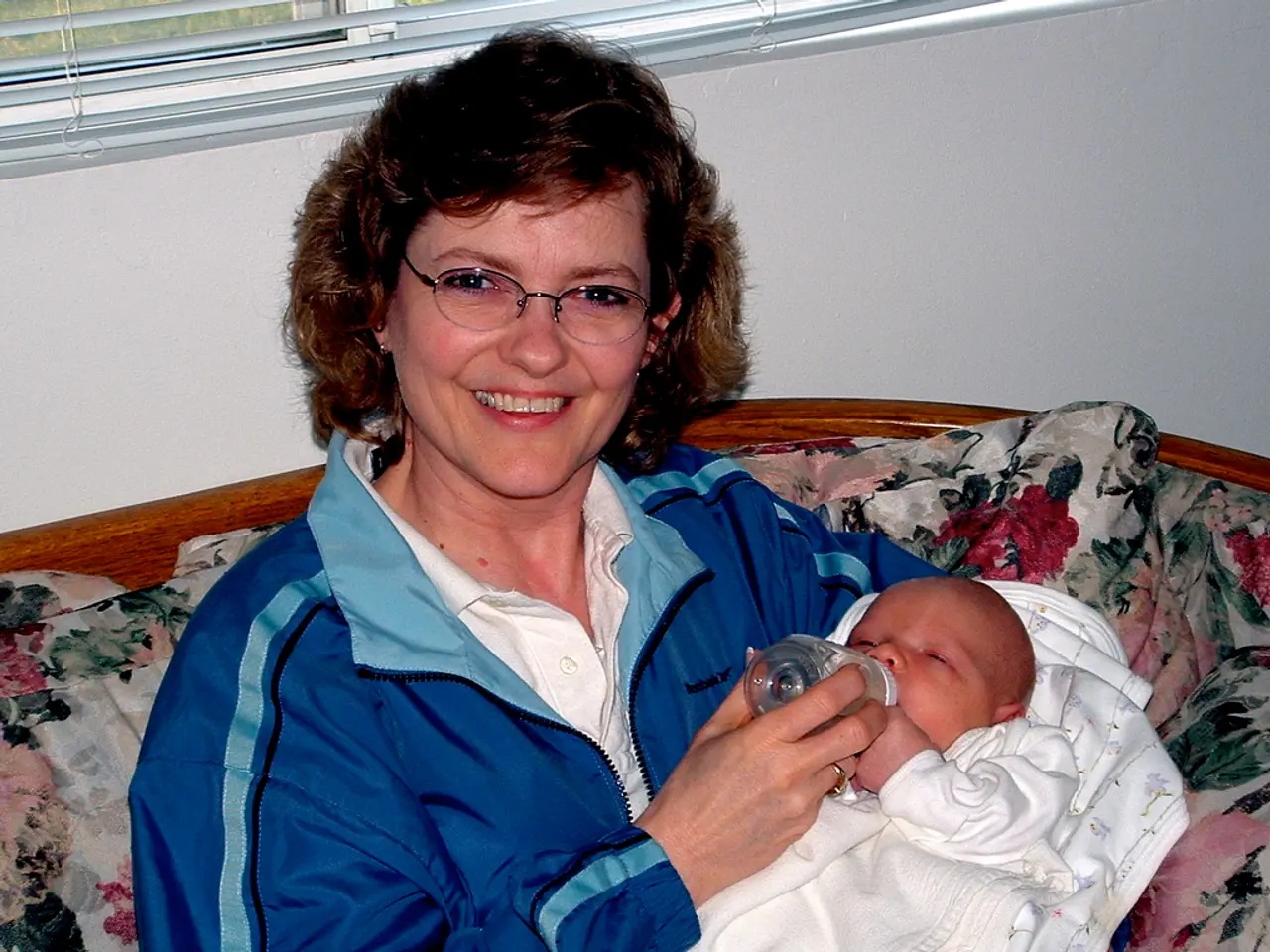Pregnancy and Anorexia: Essential Information
Pregnancy can be a challenging time for individuals with anorexia nervosa, a eating disorder that affects 0.3 to 1% of the population, and disordered eating affects up to 7%. The frequency of anorexia is highest in females of childbearing age.
During pregnancy, people with anorexia may face a higher risk of adverse pregnancy outcomes. These include hyperemesis gravidarum (severe nausea/vomiting), preterm delivery, anemia during pregnancy, antepartum hemorrhage, and low birth weight infants.
Pregnancy and lactation-associated osteoporosis (PLAO) is another possible complication. Risk factors for PLAO include body mass index (BMI) <18.5, insufficient weight gain during pregnancy, low calcium intake (<500 mg/day), and the presence of chronic diseases or use of medications like low-molecular-weight heparin.
Cardiac complications can also arise due to anorexia nervosa's impact on the heart. These include arrhythmias, hypotension (including orthostatic hypotension causing lightheadedness and fainting), reduced heart size and function, and risk of sudden cardiac death. Electrolyte imbalances related to purging behaviors can lead to life-threatening cardiac arrhythmias.
Mental health risks are also prevalent, with an increased incidence of depression during pregnancy and postpartum, especially in high-risk pregnancies. Women with eating disorders are at heightened risk for antenatal and postnatal depression, which can affect mother-infant bonding and parenting.
However, proper management with a healthcare team can help reduce these risks. Treatment options and support resources for individuals with anorexia during pregnancy and postpartum involve multidisciplinary care, nutritional rehabilitation, psychotherapy, monitoring and managing medical complications, and postpartum support.
Multidisciplinary care includes obstetricians, psychiatrists, nutritionists, and psychologists working together to monitor maternal and fetal health, manage nutritional intake, and address psychiatric symptoms. Nutritional rehabilitation involves careful refeeding to avoid refeeding syndrome, a dangerous metabolic disturbance during nutritional restoration in malnourished individuals.
Psychotherapy such as cognitive-behavioral therapy (CBT) and psychotherapy focused on body image, eating behaviors, and emotional health are also crucial. Monitoring and managing medical complications, including cardiac evaluation, electrolyte correction, and treatment for anemia or osteoporosis if present, are essential.
Postpartum support is vital to address risks of depression and to support breastfeeding and infant care. This may include support groups for mothers with eating disorders. Ensuring adequate calcium intake and weight gain during pregnancy is particularly important to reduce the risk of osteoporosis and fractures. Screening for depression and providing psychological support can mitigate postnatal mental health risks.
In conclusion, the approach prioritizes integrated medical and psychiatric care tailored to pregnant and postpartum women with anorexia nervosa, focusing on both maternal and neonatal outcomes. It is crucial for individuals with anorexia to seek help and resources such as "Eating Disorders and Pregnancy", "National Association of Anorexia Nervosa and Associated Disorders", and "Eating Disorder Hope" can be helpful.
- Women with anorexia nervosa during pregnancy may experience a higher risk of mental health issues like depression, and it's essential to monitor and manage these symptoms through psychotherapy, notably cognitive-behavioral therapy (CBT) and body image, eating behaviors, and emotional health-focused psychotherapy.
- Proper science and healthcare support can help manage complications related to pregnancy and lactation-associated osteoporosis (PLAO), which can be prevented by ensuring adequate calcium intake, maintaining a healthy weight, and monitoring for risk factors like low BMI and insufficient weight gain during pregnancy.
- In the case of anorexia nervosa during pregnancy, integrated medical and psychiatric care is crucial, consisting of multidisciplinary teams including obstetricians, psychiatrists, nutritionists, and psychologists, working together to ensure the health and wellness of both the mother and the infant.




